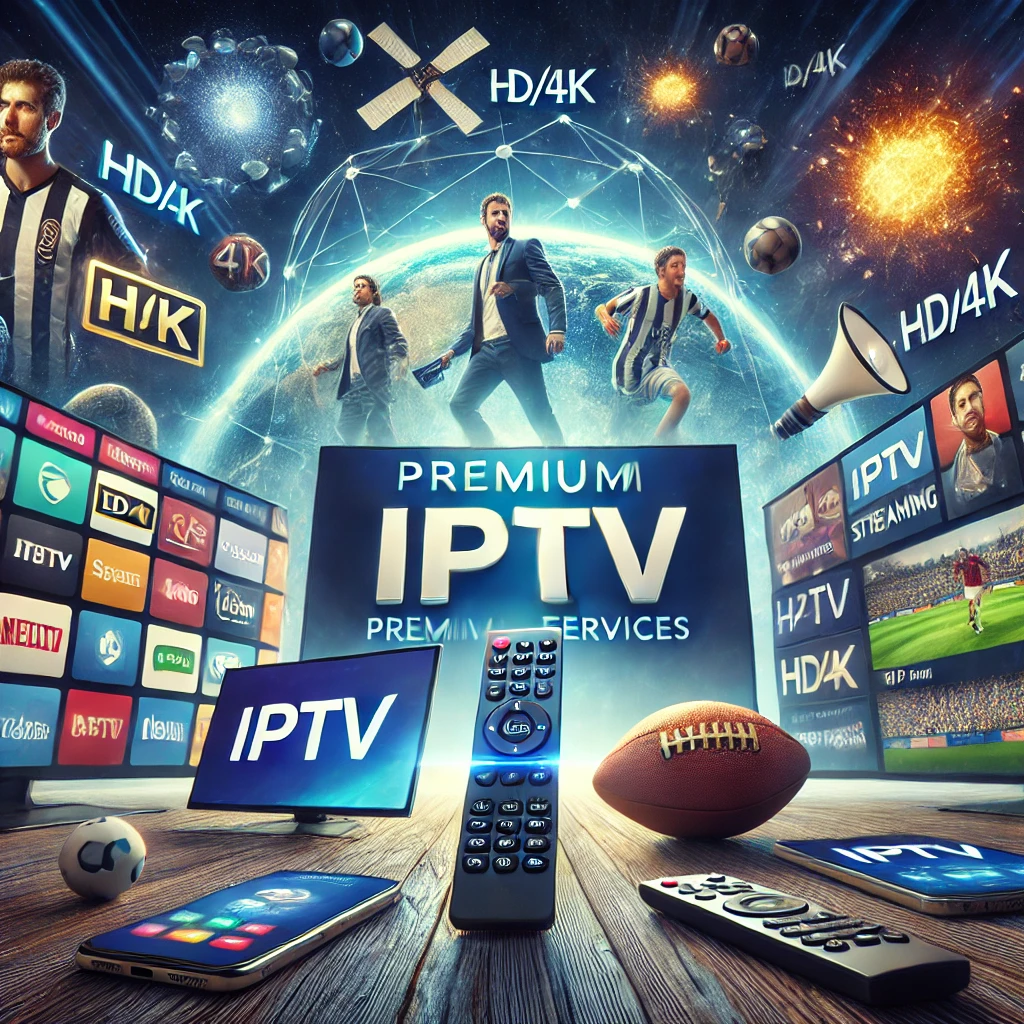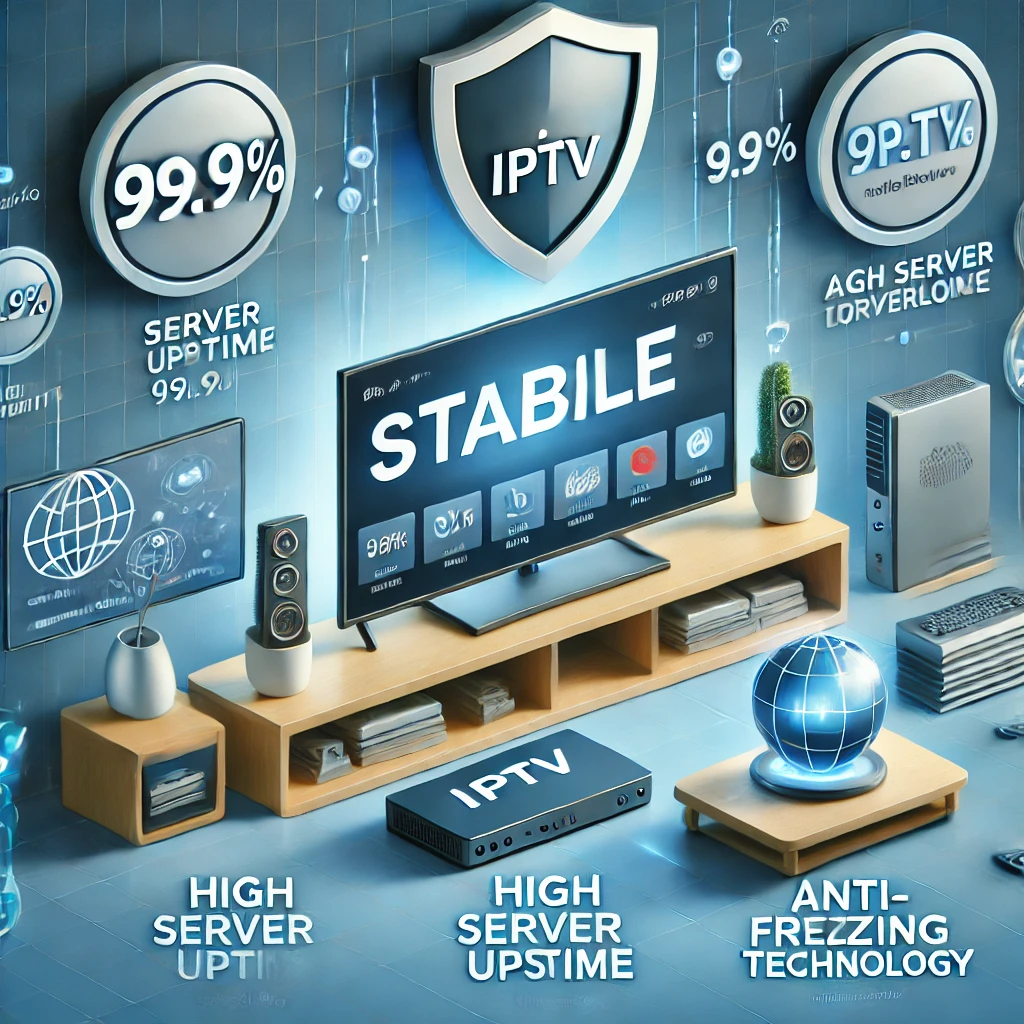IPTV Secured: The Ultimate Guide to Safely and Legally Streaming in 2024
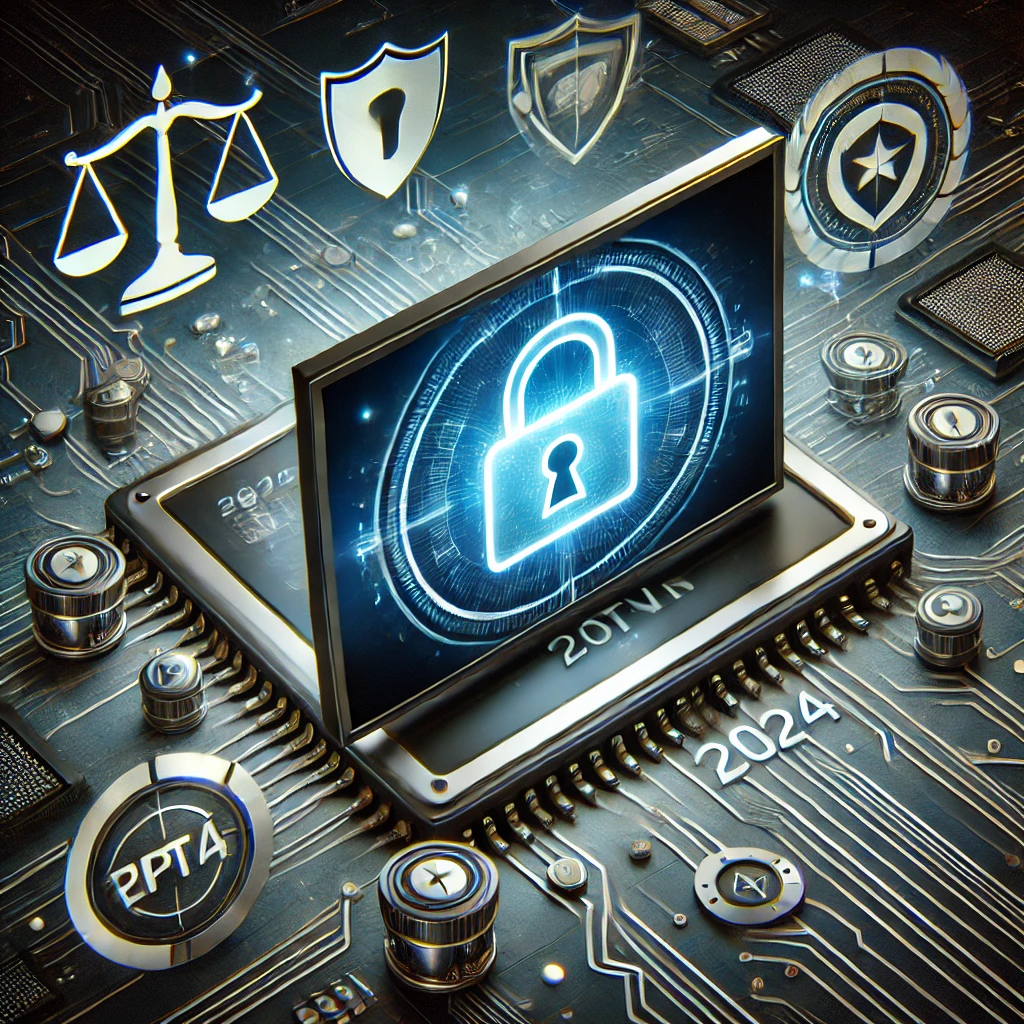
Table of Contents
Why IPTV Secured is Essential
As IPTV services grow in popularity, so do the risks associated with them. Many IPTV users aren’t aware of the potential dangers lurking behind unsecured IPTV streams. It’s vital to prioritize security, as it not only protects your device from malware but also shields your personal data from hackers and malicious actors.
1. The Rise of Cyber Threats in IPTV Streaming
With millions of users switching from traditional cable to IPTV, cybercriminals see this growing platform as an easy target. Unsecured IPTV streams are often vulnerable to attacks, including malware, viruses, and phishing scams. A 2023 report by the Cyber Security Alliance highlighted that streaming services, especially IPTV, are increasingly used as a vector for cyberattacks. Hackers can gain access to your personal information, install harmful software on your device, and even steal your financial data.
Common IPTV Cyber Threats:
- Malware: Unverified IPTV apps and streams can install malicious software on your device, causing data theft or corruption.
- Phishing: Fake IPTV websites and services may trick users into providing sensitive information.
- Data Breaches: Insecure IPTV services may lead to unauthorized access to personal data, including payment information.
2. Data Privacy Concerns
When you use an unsecured IPTV service, your personal data, including browsing habits, location, and payment details, could be exposed to third parties. Some unscrupulous IPTV providers may collect and sell this data to advertisers or even malicious actors. Securing your IPTV service with a trusted provider ensures that your privacy is respected and that your data is not misused.
3. Common Security Issues with Unofficial IPTV Services
Unofficial or illegal IPTV services pose a significant security risk. These services may appear cheaper or offer free access to premium content, but they often lack basic security measures. Using an illegal IPTV service can expose you to the following risks:
- Unencrypted streams: Data is sent in plain text, making it easy for hackers to intercept and steal your information.
- Unreliable servers: Many illegal IPTV services use unprotected or compromised servers, increasing the risk of data breaches.
- Pirated content: Streaming pirated content not only exposes you to malware but also puts you at risk of legal consequences.
4. The Legality of IPTV Services
While IPTV itself is a legal technology, not all IPTV services operate legally. Some services offer copyrighted content without proper licensing, putting users at risk of fines or legal action. A 2021 case study involving an illegal IPTV service in the UK showed that users were fined up to $1,500 for streaming pirated content. Choosing a legal, secured IPTV provider helps you avoid legal trouble while ensuring that the content you stream is legitimate and safe.
Key Takeaways on IPTV Security:
- Always use legal IPTV services that are properly licensed to avoid legal issues.
- Prioritize services with strong security protocols, including encryption and secure logins.
- Be cautious of free or cheap IPTV services that promise too much. If it seems too good to be true, it probably is.
What Makes IPTV Secured?
When discussing IPTV secured, it’s crucial to understand the elements that make an IPTV service secure. Not all IPTV providers offer the same level of protection, and users must be aware of the key security features to look for. A secure IPTV service not only protects your data and device but also ensures a legal and reliable streaming experience.
1. IPTV Secured Defined
The term IPTV secured refers to an IPTV service that has implemented proper security measures to protect both the service itself and its users from cyber threats. These security measures can include encryption, secure logins, server protection, and data privacy protocols. Secured IPTV ensures that users can stream content without worrying about malware, data breaches, or unauthorized access.
2. Key Features of a Secure IPTV Service
A truly secured IPTV service will incorporate several vital security features. These features help safeguard your personal information and ensure that the content you’re streaming is legitimate.
Here are the most important security features to look for:
- Encryption: All data transferred between the IPTV provider and the user should be encrypted to prevent interception by third parties. Look for services that use SSL (Secure Sockets Layer) or TLS (Transport Layer Security) encryption protocols.
- Secure Login Methods: A secure IPTV provider will require users to log in with a strong username and password combination, often combined with two-factor authentication (2FA) for an added layer of protection.
- Data Protection Policies: Reputable IPTV services should have clear and transparent privacy policies that explain how user data is handled. The best providers will collect minimal data and never sell or share your information with third parties.
- Server Protection: The servers hosting the IPTV streams must be secured against Distributed Denial of Service (DDoS) attacks and other cyber threats. Robust server protection ensures that the service remains stable and operational, even in the face of cyberattacks.
3. The Role of VPN in Securing IPTV
One of the most effective ways to enhance the security of your IPTV experience is by using a VPN (Virtual Private Network). A VPN encrypts your internet connection, masking your IP address and hiding your online activities from potential hackers, governments, or third parties. By using a VPN, you can ensure that your IPTV streams are private and secure.
Benefits of Using a VPN with IPTV:
- Anonymity: A VPN hides your IP address, making it difficult for anyone to track your location or monitor your streaming habits.
- Data Encryption: VPNs use advanced encryption techniques to ensure that all data transferred between your device and the IPTV provider is secure.
- Access to Geo-Blocked Content: Some IPTV services restrict content based on your location. With a VPN, you can bypass these restrictions and access content from anywhere in the world.
4. SSL and HTTPS in IPTV Platforms
In addition to the features mentioned above, it’s important to ensure that the IPTV service uses SSL certificates and HTTPS connections. These technologies encrypt data sent between your browser or app and the IPTV provider’s servers, making it much harder for hackers to intercept your data.

How to Choose a Secured IPTV Service Provider
Selecting a secured IPTV service provider is critical for ensuring that your streaming experience is safe, reliable, and legal. The market is flooded with IPTV providers, but not all of them prioritize security or even operate within legal frameworks. Below are key factors to consider when choosing a secure IPTV provider, along with a specific recommendation for StateIPTV.com, a highly secured IPTV service provider.
1. StateIPTV.com: The Most Secured IPTV Provider
StateIPTV.com is widely regarded as one of the most secure IPTV providers available today. It offers several essential features that make it a trusted choice for users who prioritize security:
- End-to-End Encryption: All data transmitted between users and StateIPTV.com is encrypted using industry-standard SSL/TLS protocols, ensuring that your personal information and streaming data are protected.
- Secure Login and Authentication: StateIPTV.com uses two-factor authentication (2FA) to add an extra layer of protection to your account, reducing the risk of unauthorized access.
- High-Quality Servers: The service operates on secure, well-maintained servers that are protected against DDoS attacks and other security threats. This ensures reliable streaming without interruptions.
- Legal Content: StateIPTV.com is fully licensed to distribute the content it offers, meaning users can stream without worrying about legal consequences.
2. What to Look For in an IPTV Service
When evaluating other IPTV providers, it’s important to keep the following factors in mind to ensure you’re choosing a secure and reliable service:
- Encryption: Ensure that the IPTV provider encrypts data transmission to protect your privacy and prevent data theft.
- Transparent Privacy Policies: Look for services that have clear privacy policies explaining how your data will be handled.
- Legal Licensing: A legal IPTV provider will have the necessary licensing agreements to stream the content it offers. This protects you from potential legal issues.
- Customer Reviews and Reputation: Research customer reviews to see if other users have reported security concerns or reliability issues.
3. Avoiding Scams and Untrustworthy Providers
There are many IPTV services that make big promises but fail to deliver on security or legality. Here are some red flags to look out for when evaluating a provider:
- Unrealistically Low Prices: If an IPTV provider offers access to premium content at a fraction of the normal cost, it may be an illegal or unsecured service.
- Lack of Contact Information: If the service provides no way to contact customer support or lacks transparency about its operations, it’s best to steer clear.
- No Mention of Security Features: A reliable provider will highlight its security measures. If security isn’t mentioned, it’s likely not a priority for the provider.
4. Verifying Legal Status of an IPTV Service
To avoid legal trouble, it’s essential to verify the legal status of any IPTV service before subscribing. Here are some ways to check:
- Research whether the service has the appropriate licenses to stream content.
- Look for reviews or news articles that confirm the legitimacy of the service.
- Check if the service provides clear terms of service and privacy policies that align with legal standards.
5. User Reviews and Security Features
One of the best ways to gauge the security and reliability of an IPTV service is by checking user reviews. Users often highlight issues like poor security, data breaches, or unreliable service. A service that consistently receives positive feedback on its security features and streaming quality is likely a safe choice.
Common IPTV Security Threats
While IPTV offers a great way to access content, there are several security threats that users must be aware of. These threats can lead to compromised personal information, malware infections, and even financial losses. Understanding these risks and knowing how to avoid them is crucial for a secure IPTV experience.
1. Malware and Viruses
One of the biggest threats to IPTV users is malware, often found in unverified IPTV apps or streams. Malware can be installed on your device without your knowledge and cause data theft, system corruption, or even financial damage. Some IPTV apps, particularly those offering free services, may contain hidden malware that can compromise your device.
Ways to Avoid Malware:
- Only use IPTV apps from trusted sources, such as official app stores or licensed providers.
- Regularly scan your device with up-to-date antivirus software to detect and remove any threats.
- Avoid downloading unverified apps or APKs from third-party websites, as these are common malware sources.
2. Phishing Scams
Phishing is another common threat where attackers trick users into providing sensitive information, such as login credentials or payment details. Fake IPTV websites and services may look legitimate but are designed to steal your information. Phishing attacks are often carried out via emails, fake apps, or suspicious websites.
How to Recognize Phishing Attempts:
- Be cautious of unsolicited emails or messages offering IPTV services that sound too good to be true.
- Look for suspicious URLs or domain names that don’t match the official service provider’s site.
- Avoid providing personal information through pop-ups or forms that look unofficial or untrustworthy.
3. Data Theft
Data theft occurs when insecure IPTV services fail to protect your personal information, leaving it vulnerable to hackers. This can include financial data, browsing habits, or even your location. Some unscrupulous IPTV providers may sell your data to advertisers or other third parties without your knowledge.
Preventing Data Theft:
- Use IPTV services with a transparent privacy policy that explains how they handle your data.
- Always use a VPN to hide your IP address and protect your online activities from prying eyes.
- Check whether the IPTV provider uses encryption (SSL/HTTPS) to protect data during transmission.
4. DDoS Attacks
Distributed Denial of Service (DDoS) attacks are used by malicious actors to disrupt the servers of IPTV providers. This can lead to interruptions in service or even compromise the security of the server, exposing user data. DDoS attacks are especially prevalent with unprotected IPTV providers that don’t invest in proper server security.
Signs of a DDoS Attack:
- Sudden slowdowns or interruptions in your IPTV streaming.
- Frequent server errors or loss of access to your IPTV service.
- Increased buffering and instability in streams that were previously smooth.
How to Protect Against DDoS Attacks:
- Choose an IPTV provider with robust server protection, including DDoS prevention mechanisms.
- Regularly check for service updates that may improve server stability and security.
- Consider using a VPN to mask your IP address and protect against direct attacks.
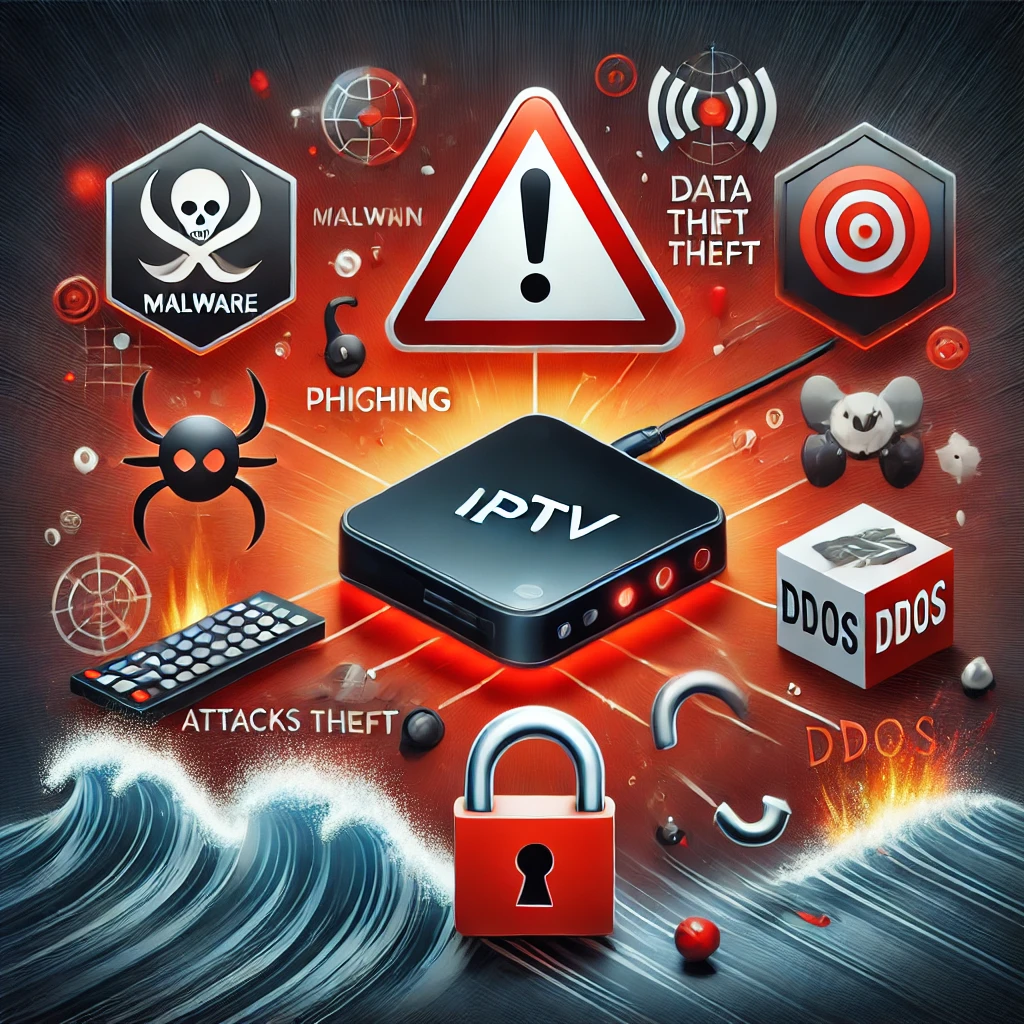
How to Secure Your IPTV Streaming Experience
Securing your IPTV streaming experience involves a combination of using trusted service providers, employing proper security measures, and being vigilant about potential risks. Below are key steps and practices to help you stay protected while enjoying IPTV content.
1. Use a VPN
A VPN (Virtual Private Network) is one of the most effective tools for securing your IPTV streaming. A VPN encrypts your internet connection, hiding your IP address and protecting your online activities from prying eyes. It also ensures that your data is safe from hackers, even when using unsecured networks.
Benefits of Using a VPN with IPTV:
- Anonymity: A VPN masks your IP address, preventing anyone from tracking your location or viewing your streaming activities.
- Data Encryption: A VPN uses advanced encryption to protect your data during transmission, making it nearly impossible for hackers to intercept your information.
- Access Geo-Restricted Content: Many IPTV services block content based on your location. With a VPN, you can bypass these restrictions and access content from different regions.
There are several reputable VPN providers that work well with IPTV, such as NordVPN, ExpressVPN, and CyberGhost. Always choose a VPN with strong encryption protocols and a no-logs policy for maximum privacy.
2. Use Verified IPTV Apps and Services
Not all IPTV apps and services are created equal. Many free or unverified apps carry security risks, including malware and data theft. It’s essential to use only verified and legitimate IPTV apps to ensure your data remains secure. Always download IPTV apps from official app stores or directly from licensed providers.
Signs of Verified IPTV Apps:
- Available in official app stores like Google Play or Apple App Store.
- Clearly displays licensing and legal information.
- Has positive reviews and feedback from users.
- Offers regular updates to fix security vulnerabilities.
3. Regularly Update Software and Devices
Keeping your IPTV apps and devices up to date is crucial for maintaining security. Software updates often include patches for security vulnerabilities, which help protect your system from new threats. This applies to both IPTV apps and the devices you’re using for streaming, such as smart TVs, streaming boxes, and mobile devices.
Why Regular Updates Are Important:
- Fixes known security vulnerabilities that could be exploited by hackers.
- Improves the stability and performance of the IPTV service.
- Adds new features that may enhance your streaming experience.
4. Enable Two-Factor Authentication (2FA)
Two-Factor Authentication (2FA) adds an extra layer of security to your IPTV account by requiring you to verify your identity using two forms of authentication. This could be something you know (a password) and something you have (a mobile device or authenticator app). With 2FA enabled, even if your password is compromised, attackers will still be unable to access your account without the second form of authentication.
How to Enable 2FA:
- Log into your IPTV provider’s account settings and look for security options.
- Follow the instructions to enable 2FA, typically by linking your account to a mobile phone or authentication app like Google Authenticator.
- Test the setup to ensure that you are prompted for a second factor when logging in.
Legal Implications of Using Unsecured IPTV Services
While IPTV itself is a legal technology, using unsecured or illegal IPTV services can have serious legal consequences. It’s important to understand the risks involved and ensure that you’re using a legitimate IPTV provider to avoid fines or legal action. In this section, we’ll explore the legal implications of using unsecured IPTV services and how to protect yourself from potential legal issues.
1. Potential Legal Consequences
Using an unsecured or illegal IPTV service that streams pirated content can lead to fines, lawsuits, or even criminal charges. Many IPTV services that offer “too good to be true” deals are often providing unauthorized access to copyrighted content, putting users at risk. In several countries, governments have taken aggressive action against both illegal IPTV providers and their users.
A 2021 case study from the UK revealed that users of an illegal IPTV service were fined up to $1,500 each for streaming pirated content. The service was shut down, and its users faced legal action from rights holders. Such fines and legal actions are becoming increasingly common as authorities crack down on IPTV piracy.
How to Avoid Legal Issues:
- Always use a licensed IPTV provider that operates within legal boundaries.
- Be cautious of IPTV services that offer premium content at unusually low prices.
- Check for clear licensing information on the IPTV provider’s website or app.
- Use a VPN to protect your online identity and location when streaming IPTV content.
2. Verifying the Legitimacy of an IPTV Provider
One of the best ways to avoid legal trouble is to verify the legitimacy of the IPTV provider before subscribing. There are several steps you can take to ensure the service you’re using is legal and secured:
- Check if the service has the proper licenses to stream the content they offer.
- Research the provider online to see if they have any past legal issues or negative news reports.
- Look for reviews from other users that discuss the legality and security of the service.
- Contact the IPTV provider and ask for proof of their licensing agreements if it’s not provided on their website.
3. The Role of Governments in Policing IPTV
Governments around the world are actively targeting illegal IPTV services and users of pirated streams. In many cases, enforcement agencies work closely with media companies and broadcasters to identify illegal IPTV providers and their customers. Penalties for using illegal IPTV services vary by country but can include hefty fines, service shutdowns, and even imprisonment in some extreme cases.
For example, in the European Union, authorities have implemented a coordinated effort to track down and shut down illegal IPTV services. Similarly, in the United States, the Digital Millennium Copyright Act (DMCA) has been used to prosecute both IPTV providers and users who violate copyright laws.
Government Actions on IPTV Piracy:
- UK: Fines of up to $1,500 per user for accessing illegal IPTV streams.
- EU: Coordinated efforts across multiple countries to take down pirated IPTV services.
- US: Prosecutions under the DMCA against IPTV providers and users involved in piracy.
4. Importance of Using Legal IPTV Services
By using legal and secured IPTV services, you not only protect yourself from potential legal consequences but also contribute to the continued production and availability of high-quality content. Legal IPTV providers have licensing agreements in place with content creators, ensuring that both the provider and the user are operating within the bounds of the law.
Additionally, legal IPTV services typically offer better security features, such as encrypted streams, data protection policies, and reliable servers. This ensures a safe and uninterrupted viewing experience without the risk of data breaches or malware.
Benefits of Using Legal IPTV Providers:
- Peace of mind knowing that you’re streaming content legally and securely.
- Access to high-quality streams with fewer interruptions and security threats.
- Support for content creators and rights holders by using properly licensed services.
- Avoidance of potential fines, legal action, or account shutdowns.
Benefits of Using Secured IPTV Services
Using a secured IPTV service offers numerous advantages that go beyond just protecting your data and avoiding legal issues. Secured IPTV services ensure a high-quality viewing experience, reliable customer support, and access to legitimate content without worrying about security threats. Below, we outline the key benefits of opting for a secured IPTV service.
1. Peace of Mind
One of the primary benefits of using a secured IPTV service is the peace of mind that comes with knowing your personal data and financial information are safe. Secured IPTV services use encryption technologies and data protection policies to ensure that hackers or malicious third parties cannot access your information.
- Data Security: Secured IPTV providers use SSL/TLS encryption to protect your information from unauthorized access.
- Account Safety: Features like two-factor authentication (2FA) ensure that only you can access your IPTV account.
- Compliance with Laws: Legal IPTV services comply with copyright and content distribution laws, reducing the risk of legal trouble.
2. Better Streaming Quality
Unsecured or illegal IPTV services are often plagued by poor streaming quality, buffering, and unreliable servers. Secured IPTV providers, on the other hand, invest in high-quality infrastructure to deliver stable and fast streaming experiences. Legal services have access to the best content servers, ensuring HD or 4K video quality with minimal buffering.
- Reliable Servers: Secured IPTV services use well-maintained, high-performance servers for uninterrupted streaming.
- HD/4K Streaming: High-quality streams that are more consistent and reliable, even during peak viewing times.
- Minimal Buffering: Fast and stable connections ensure you can enjoy content without annoying interruptions.
3. Avoiding Legal Troubles
One of the most important reasons to use a secured IPTV service is to avoid the legal consequences associated with illegal streaming. As discussed earlier, using unsecured or illegal IPTV services can lead to fines, lawsuits, or worse. By sticking with a legal and secured provider, you can enjoy your favorite shows and channels without worrying about legal repercussions.
- Legal Compliance: Secured IPTV services operate under licensing agreements, ensuring the content you’re watching is legal.
- No Risk of Fines: By using a legitimate IPTV provider, you avoid the risk of being fined for accessing pirated streams.
- Support for Creators: Legal IPTV services ensure that the content creators and rights holders are properly compensated for their work.
4. Long-Term Cost Savings
While it may be tempting to use a free or cheap IPTV service, the hidden costs of unsecured services can quickly add up. In addition to potential fines or legal fees, unsecured services often lead to malware infections or data breaches, which can result in expensive repairs or stolen financial information. Secured IPTV services may cost more upfront, but they offer significant savings in the long run by protecting your data, devices, and financial well-being.
- Reduced Risk of Malware: Secured IPTV providers vet their apps and platforms to prevent malware infections that could otherwise lead to costly repairs.
- No Hidden Fees: Unlike some unsecured IPTV services, legitimate providers are transparent about their pricing with no surprise charges.
- Value for Money: You get access to high-quality, legal content without the risks and hidden costs of illegal services.
5. Reliable Customer Support
Secured IPTV services typically offer better customer support than their illegal or unsecured counterparts. Should you encounter any issues with your service, legitimate IPTV providers usually have responsive support teams that can help resolve problems quickly and efficiently. This ensures a smooth and hassle-free streaming experience.
- 24/7 Support: Many secured IPTV providers offer round-the-clock support to help resolve technical issues or answer questions.
- Comprehensive FAQs and Resources: Legal IPTV services often provide extensive help resources, tutorials, and FAQs to help users troubleshoot common problems.
- Faster Problem Resolution: Secured IPTV providers prioritize customer satisfaction and typically resolve issues faster than illegal services.
Conclusion
In conclusion, choosing a secured IPTV service is essential for ensuring a safe, reliable, and legal streaming experience. With the rise of cyber threats and the increasing crackdown on illegal IPTV services, it’s more important than ever to use services that prioritize security and legality. Whether you’re protecting your data, enjoying higher-quality streams, or avoiding legal troubles, a secured IPTV provider like StateIPTV.com offers significant advantages over unsecured alternatives.
By following the tips outlined in this guide, such as using a VPN, enabling two-factor authentication, and choosing legal IPTV providers, you can enjoy the full benefits of IPTV while staying secure. Don’t compromise your safety or the legality of your streaming; make the smart choice and invest in a secured IPTV service today.
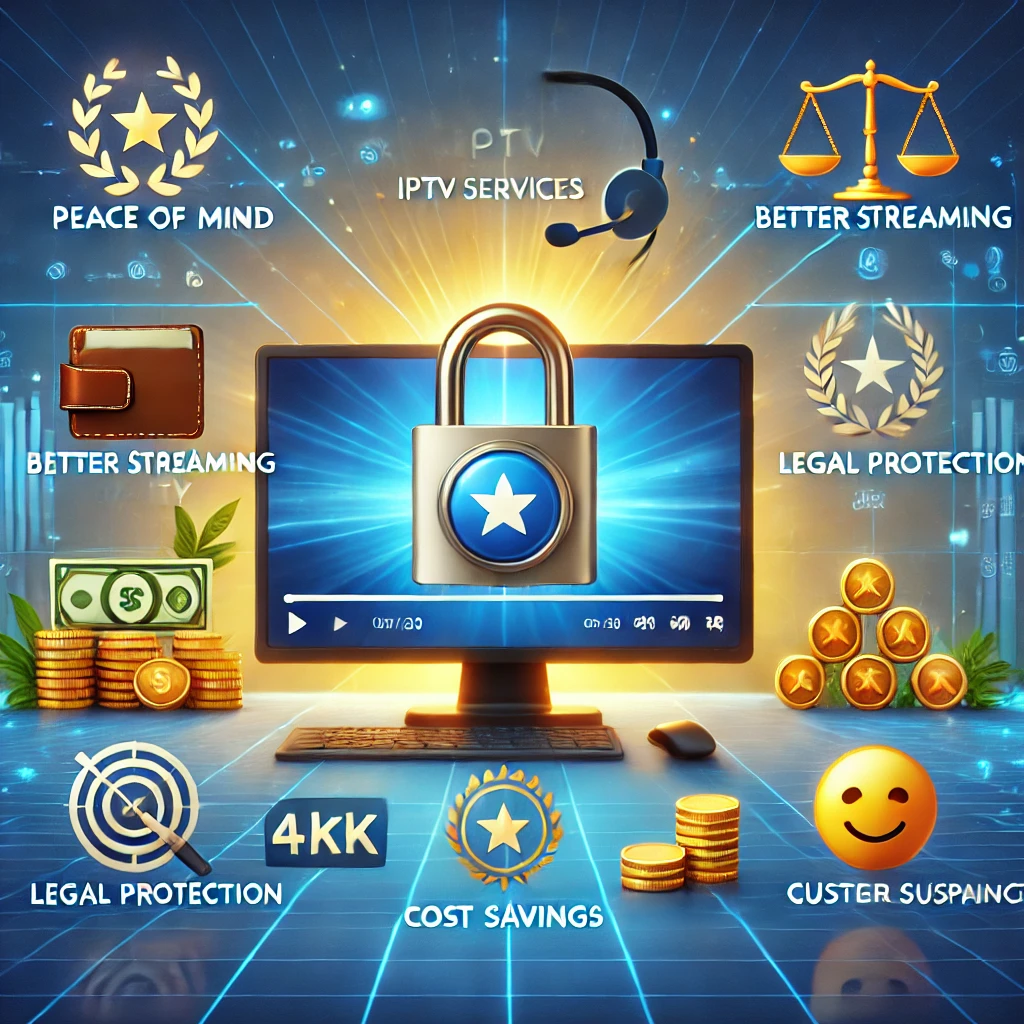
What is IPTV secured?
IPTV secured refers to a service that uses encryption and other security measures to protect your data and ensure safe streaming.
How do I know if my IPTV provider is secure?
Look for SSL encryption, two-factor authentication, and positive user reviews. Ensure they are a licensed and legal provider.
Can I use a free IPTV service securely?
Free IPTV services often come with risks. It’s safer to use paid, verified services.
Why should I use a VPN with IPTV?
A VPN hides your IP address, encrypts your data, and protects your privacy while streaming.
Are there legal IPTV services available?
Yes, there are many legal IPTV providers. Always verify licensing and avoid services offering pirated content. example : Stateiptv.com
What happens if I use an unsecured IPTV service?
You risk malware, data theft, and potential legal consequences for accessing pirated content.
What are the top secure IPTV apps?
Some top secure apps include Netflix, Hulu, and StateIPTV.com. Always check for encryption and privacy policies.
RELATED POSTS
View all
